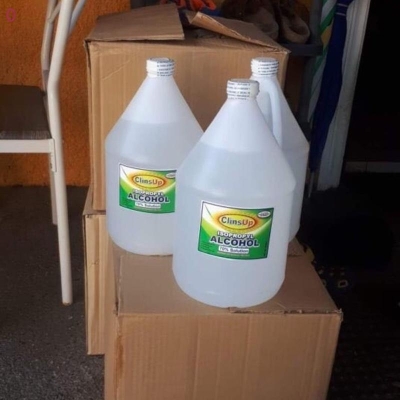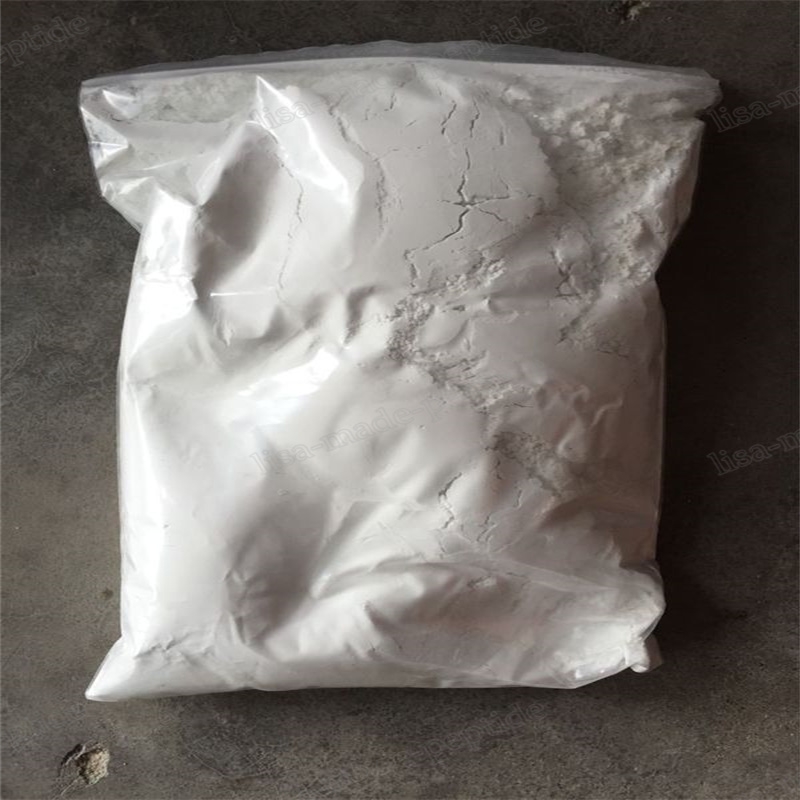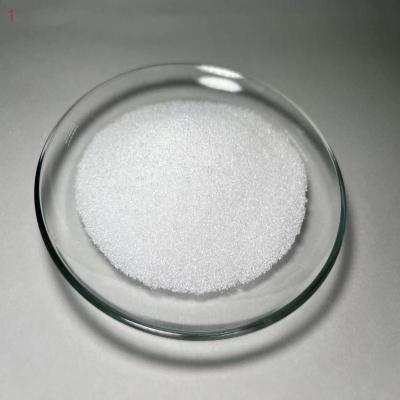-
Categories
-
Pharmaceutical Intermediates
-
Active Pharmaceutical Ingredients
-
Food Additives
- Industrial Coatings
- Agrochemicals
- Dyes and Pigments
- Surfactant
- Flavors and Fragrances
- Chemical Reagents
- Catalyst and Auxiliary
- Natural Products
- Inorganic Chemistry
-
Organic Chemistry
-
Biochemical Engineering
- Analytical Chemistry
-
Cosmetic Ingredient
- Water Treatment Chemical
-
Pharmaceutical Intermediates
Promotion
ECHEMI Mall
Wholesale
Weekly Price
Exhibition
News
-
Trade Service
On the one hand, the apparel industry needs sustainable fabrics, on the other hand, a large number of waste plastic bottles and waste textiles are difficult to naturally degrade in a short time.
An environmentally friendly "green" raw material with excellent performance, the application of recycled polyester fiber has become one of
the best solutions to the above problems.
China Industry News reporters recently learned from interviews in textile concentrated areas such as Suzhou, Jiangsu Province and Shaoxing in Zhejiang Province that under the influence of factors such as health and environmental awareness, advocating nature and other factors, consumers have re-recognized and explored
the value of recycled polyester fiber while paying attention to the environmental protection performance in the process of textile consumption.
The popularity of end consumers and brands has driven the expansion of recycled polyester fibers, which now reach the million-ton level
.
Products are "favored" and "long red" must strictly control the quality
According to the estimates of relevant institutions, in 2022, the global population will exceed 8 billion, according to the annual per capita consumption of 10 kg -20 kg of fiber products in developed countries, about 80 million tons of fiber textiles will be consumed every year, and there are huge sources of pollution and carbon emissions
hidden in the industrial chain.
As a large chemical fiber country, China's chemical fiber production accounts for more than 70% of the world, and the task of carbon reduction is even more urgent
.
The emergence of recycled polyester fiber has solved the problems
faced by the chemical fiber industry.
An employee of a chemical fiber company calculated such an account for reporters, and the annual output of 200,000 tons of recycled polyester fiber can digest 10 billion waste plastic bottles, which can reduce carbon emissions by about 400,000 tons; One plastic bottle weighs about 20 grams, 50,000 plastic bottles can be made into 1 ton of recycled polyester fiber, and 1 ton of recycled PET fiber reduces carbon emissions by about 2.
05 tons
compared with ordinary PET fiber.
"With the help of recycled polyester fiber manufacturing, part of domestic waste can enter the recycling channel, reducing dependence on non-renewable resources and achieving sustainable development; At the same time, textiles made of recycled polyester fibers with 'green genes' are also more popular with foreign consumers and conducive to export
.
A person in charge of a company said
in an interview with reporters.
With its excellent environmental performance, recycled polyester fiber has not only received more attention from the industry, but also received strong support
from the state.
On April 11, the National Development and Reform Commission and other three departments issued the "Implementation Opinions on Accelerating the Recycling of Waste Textiles", which not only clarified the development goals of China's waste textile recycling for the first time, but also considered from the aspects of production, recycling and comprehensive utilization, coordinated all links to work together to accelerate the construction of waste textile recycling system, and clarified the path
for the development of China's recycled polyester fiber industry.
Although there are many favorable conditions for the development of recycled polyester fiber, the development of the industry still faces many problems
.
Taking recycled polyester made from recycled plastic bottles as an example, due to the large number of impurities and poor balance of raw materials, recycled polyester fiber has higher
requirements for process control.
At the raw material end, plastic bottles need to be cleaned, screened, melted, refined and other links before they can be sliced before they can be further recycled and processed
.
The recycled plastic bottles have different thicknesses and pressure resistance, and some even carry various pollutants such as sediment and oil stains, resulting in increased processing difficulties and production costs that are much
higher than virgin fibers.
With the continuous expansion of the market cake, more capital and enterprises have poured into the track, and the market order of recycled polyester needs to be further improved
.
A survey by a reporter from China Industry News found that the original polyester fiber counterfeit recycled polyester fiber on the market, as well as the incomplete traceability chain of recycled polyester fiber, shoddy charging, unclear proportion, regulatory standards, and inconsistent testing methods, have caused many fiber companies to "feel headaches"
.
It can be seen that accelerating the industrialization process of recycled polyester fiber not only requires fiber research and development and production enterprises to continuously overcome technical barriers, but also to improve the environmental awareness of the whole society, improve the recycling production system, and continue to regulate the market order
.
Prevent microaggression and gradually ensure the healthy and sustainable development of the industry
Strong market demand continues to promote the rapid development
of the recycled polyester fiber industry.
The person in charge of an enterprise revealed to reporters that at present, China's recycled polyester fiber is developing rapidly, and the demand of downstream brands is increasing by more than 20% per year, but the overall production capacity of recycled polyester fiber is still in the climbing stage
.
In the case of short supply, the chaos of passing off ordinary fibers as recycled polyester
fibers has intensified.
Industry insiders told reporters that due to China's recycled polyester fiber entry threshold, large number of enterprises, large industrial scale, fierce market competition, some enterprises pursue profits, label virgin fiber products with recycled polyester fiber, and sell them as recycled polyester fiber in the market
.
The person revealed that after the label of virgin fiber is labeled as recycled polyester fiber, the market price can rise by 1,000-2,000 yuan per ton, and some can even be as high as 6,000-7,000 yuan
per ton.
For example, he said that virgin fiber and recycled polyester fiber are like inorganic vegetables and organic vegetables, there is no difference in appearance, but there are great differences in production process, process flow, cost input, environmental protection value, etc.
, in the long run, there is bound to be a huge hidden danger of "bad money driving out good money", seriously undermining the healthy and orderly development of
China's green industry.
"Some companies have neither plant nor equipment, ostensibly reselling recycled fiber, but actually reselling the concept of
recycled fiber.
" Relevant people said that the current way of corporate fraud can be described as painstaking
.
For example, the bottle washing plant sells non-PET such as labels, tin foil, and bottle caps generated by bottle washing as waste, and falsely opens TC certificates, giving the downstream the opportunity to fake the truth; TC certificates are turned into "commodities" by illegal enterprises for sale; The illegal enterprise used some recycled fibers as 100% recycled fibers, and did not apply for TC certificates according to the actual proportion.
.
.
The person said that from the long-term perspective of protecting the healthy and sustainable development of the industry, this phenomenon must be curbed
in time.
"At present, this kind of counterfeiting has hit the enthusiasm of real enterprises producing recycled polyester fibers and violated the national policy of building green waters and green mountains; Second, at the beginning, there was only a phenomenon of individual fraud in the market, but if it is allowed to develop, bad money will drive out good money and destroy the entire industrial ecology; Third, 90% of the recycled polyester fiber filament production capacity is concentrated in Chinese mainland, but the terminal brand is mainly European and American brands, and the standard implemented is the global recycling standard (GRS), although the 'fake to real' products are a small part, but if they do not attract attention, they may be lost due to small mistakes, resulting in foreign brands distrusting Chinese textiles and accidentally injuring the entire industry
.
”
The platform helps clarify the development path
The relevant person in charge of the China Chemical Fiber Industry Association said that the recycled textile industry is a typical green, environmental protection and circular economy industry, which is in line with the national strategy
of "comprehensive, coordinated and sustainable development".
Although China has a complete ecological chain of recycled polyester fiber industry, it lacks a renewable traceability system and credible certification system
.
In order to give full play to the social responsibility of enterprises in the renewable industry, improve the certification and collaboration efficiency of upstream and downstream enterprises in the industrial chain, and steadily enhance the industry status and influence in the field of renewable ecology in China, it is of great significance and urgency to establish a trusted platform for green fiber products and build a reliable platform for recycling with advanced technology and efficient collaboration
.
It is understood that there are three main standard management systems on the market, one is the global recycling standard (GRS).
Originally established
by the Dutch company CU.
At present, a number of testing standard companies have participated in the review and issuance and management of TC certificates, which is also a management standard
with the most users.
The second is the identification and tracking standard
.
It is a self-developed detectable substance added by fiber manufacturers to recycled polyester fibers, and this additive can still be detected
after the fiber is made into fabrics and garments.
The end brand can send the final product to the fiber manufacturer for testing to determine whether the manufacturer's recycled product
is being used.
Third, the end customer directly inspects and certifies the supplier, and the qualified person will carry out designated procurement cooperation
.
A business source told reporters, "These three methods have certain regulatory loopholes, and they cannot be well traced
to the entire industrial chain.
" Moreover, GRS is the entire production and marketing supervision and traceability from the source of the product to the final retail brand, and the product production and marketing links must have GRS certification to be supervised and confirmed, which has a hidden danger
to the information security of China's textile industry chain.
”
The person bluntly said that the fundamental reason for the phenomenon of raw fibers passing off as recycled polyester fibers on the market is that China's recycled polyester fiber product certification and supervision are subject to people
.
Therefore, the construction of a credible and traceable regulatory system for recycled polyester fiber products is crucial
.
In January this year, under the guidance of the Ministry of Industry and Information Technology, the trusted system of China's recycled textile industry - Green Fiber Products Trusted Platform (STCP) was officially released
online.
The platform is jointly operated
by the China Chemical Fiber Industry Association and the National Advanced Functional Fiber Innovation Center.
According to reports, from 2022 to 2023, the platform will carry out external expansion and connotation extension, continue to improve the platform functions, expand the platform service content, gradually deepen through digital trusted transformation, improve digital trusted solutions through top-level design, and realize trusted access
to data in the industrial chain 。 It is estimated that by 2024, the platform will empower the entire industry chain to carry out digital transformation and upgrading, expand the value of the platform, create benefits, and participate in the customization of industry rules, create China's own transparent, traceable and reliable certification platform, maintain the market order of green fiber and green textiles, and finally build the platform into a world-class certification platform
.
(Reporter Meng Fanjun Ma Yan)
From: China Industry News
Return to Sankei homepage >>
The industrialization process of recycled polyester fiber needs to be accelerated
Welcome here







